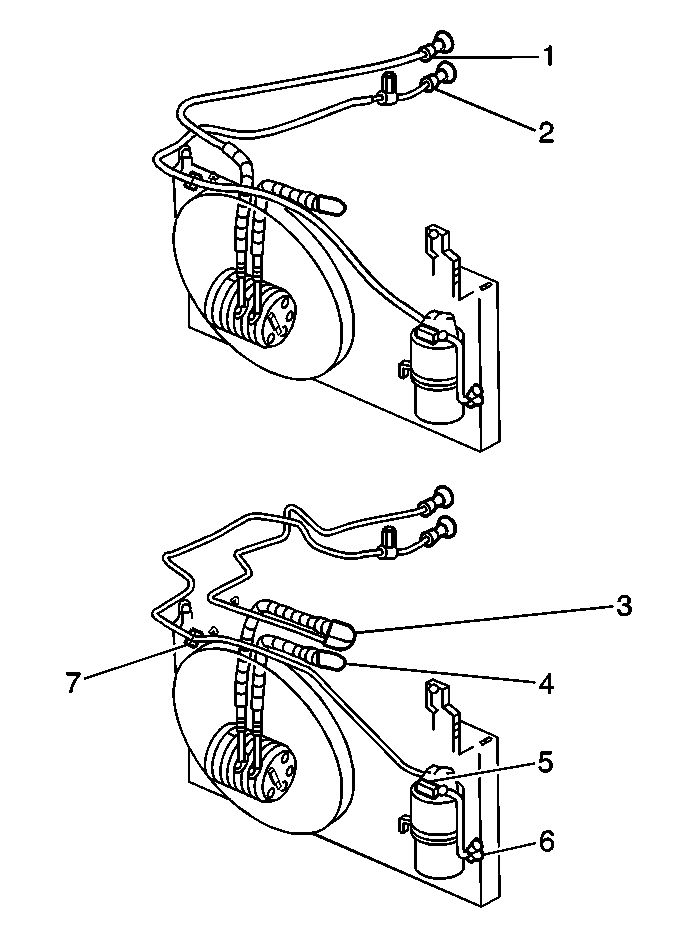Removal Procedure
- Discharge and recover the refrigerant. Refer to Refrigerant Recovery and Recharging .
- Remove the air cleaner from the vehicle.
- The 1.3L has a 2-piece suction pipe assembly. Replace either piece, or both as necessary.
- Disconnect the pipe fitting located to the left of the radiator (1.3L only).
- Remove the compressor suction pipe at the evaporator bulkhead fitting.
- Remove the bracket(s) and the suction pipe from the vehicle.

Remove the bolt and the compressor suction pipe (1) from the compressor.
Installation Procedure
- Coat new O-rings with mineral base 525 viscosity refrigerant oil.
- Install the O-rings to the suction pipe.
- Install the compressor suction pipe (1) to the vehicle.
- Install the compressor suction pipe at the evaporator bulkhead fitting.
- Connect the pipe fitting located to the left of the radiator (1.3L only).
- Install the pipe at the compressor fitting with 1 bolt.
- Secure the compressor suction pipe at the support bracket(s).
- Install the air cleaner to the vehicle.
- Evacuate and recharge the air conditioning (A/C) system. Refer to Refrigerant Recovery and Recharging .
- Operate the A/C system and inspect for refrigerant leaks. Refer to Leak Testing .

Notice: Use the correct fastener in the correct location. Replacement fasteners must be the correct part number for that application. Fasteners requiring replacement or fasteners requiring the use of thread locking compound or sealant are identified in the service procedure. Do not use paints, lubricants, or corrosion inhibitors on fasteners or fastener joint surfaces unless specified. These coatings affect fastener torque and joint clamping force and may damage the fastener. Use the correct tightening sequence and specifications when installing fasteners in order to avoid damage to parts and systems.
Tighten
Tighten the compressor pipe fitting bolt to 9.8 N·m (86.74 lb in).
